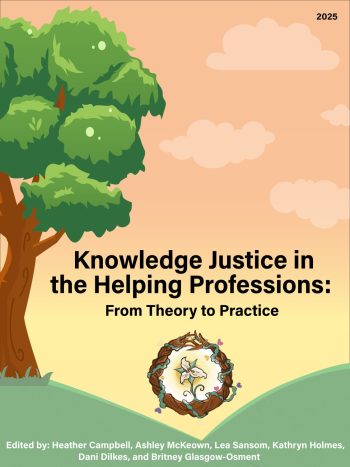Nursing
- Journal Articles
- 6S Pyramid
- Videos
- Images
- Citation
- Study Guides/Resources
- Grey Literature and Statistics
-
Courses
Toggle Dropdown
- BCN - Bridge to Canadian Nursing
- ACCN - Advanced Studies in Critical Care Nursing
- HLTH 2250 - Videos from Class Modules
- NURS 1111 - Finding popular media sources
- NURS 1111 - Choosing and evaluating sources
- NURS 1111 - Finding scholarly (peer reviewed) articles
- NURS 1111 - Knowledge justice
- NURS 2111 - Nursing Concept Research Skills
- NURS Third Year Block 1
- NURS Third Year Block 2
- NURS Third Year Block 3
- NURS Third Year Block 4
- Truth and Reconciliation Resources
- INTS 2250 - Local Indigenous Health and Wellbeing - K. Pritchard
- Research Help
- Support for Evidence Syntheses
- Chill Guide
New concept: Knowledge justice
Knowledge Justice
Why it matters for nurses: Nursing knowledge is not only scientific — it also includes lived experience, culture, and community wisdom. Practicing knowledge justice helps ensure care and evidence reflect diverse perspectives.
Other library guides in the NURS 1111 series:
What is knowledge justice?
Knowledge justice means making space for many kinds of knowledge, not just academic research, so that all voices, including lived and cultural experiences, can count as evidence.
Gauthier, Campbell, and McKeown (2024) define knowledge justice as the idea that everyone has the equal capacity to be knowledgeable, yet this right is often denied based on social identities. Some knowledge systems, especially those of Indigenous peoples, have been purposefully ignored or silenced. Practicing knowledge justice means recognizing multiple ways of knowing, questioning whose voices are missing, and engaging across diverse perspectives with humility.
For nurses, this matters because knowledge comes in many forms, not only books or research articles. Patients’ lived experiences, cultural knowledge, and community practices also count as evidence. Ignoring these perspectives risks dismissing the people we are meant to care for.
Practicing knowledge justice when searching for or choosing sources includes:
- Reflect on your own feelings and biases. How might they affect what you select?
- Ask whose knowledge matters for this issue. Do your sources include those most impacted?
- Use inclusive language in your searches; avoid harmful or outdated terms.
- Look widely to find perspectives beyond mainstream academic research.
Tip: If you’re looking for scholarly discussions, try searching the term epistemic justice.
Promoting justice includes promoting knowledge justice
Finding different perspectives on your issue
Redden, M., Kwak, A., & Newman, J.(2024). Marginalized voices honeycomb [Diagram]. In Module 2: Listening for Marginalized Voices (OER). University of Toronto. https://q.utoronto.ca/courses/412115. CC BY-NC-SA 4.0.
More helpful resources

Knowledge justice in the helping professions: From theory to practice (open educational resource)
This open textbook introduces epistemic (knowledge) justice, the fair recognition, production, and use of knowledge, and shows how it applies to study and professional practice. Drawing on examples from nursing, librarianship, and counselling, it explains common injustices (e.g., whose voices are heard or ignored) and offers practical ways to design assignments, research, and services that value diverse knowers. Although framed through the helping professions, the concepts and tools are transferable across disciplines.

Listening for marginalized voices (Open lesson)
A hands-on guide to locating, evaluating, and ethically using marginalized perspectives in research and writing.
Learners will:
- See limits of “privileged” academic sources
- Map venues for marginalized perspectives (grey lit, community reports, oral histories, podcasts, zines, social media, news)
- Use the Honeycomb to plan searches (keywords, community terms, citation chaining, site/domain filters)
- Judge context/credibility and cite ethically
- Reflect on positionality and reduce bias in sourcing
Module 2 of the open course Exploring Marginalized Voices


